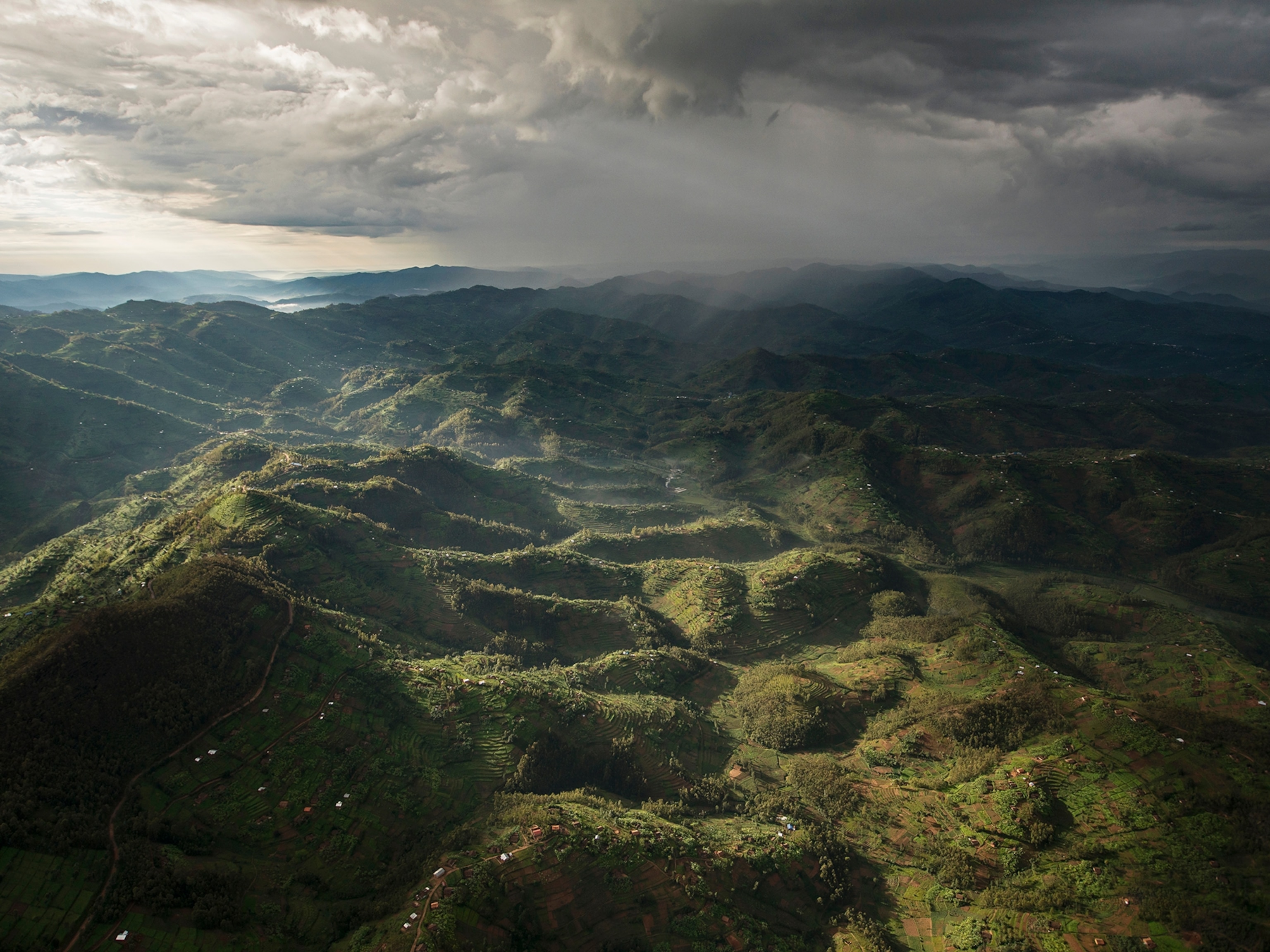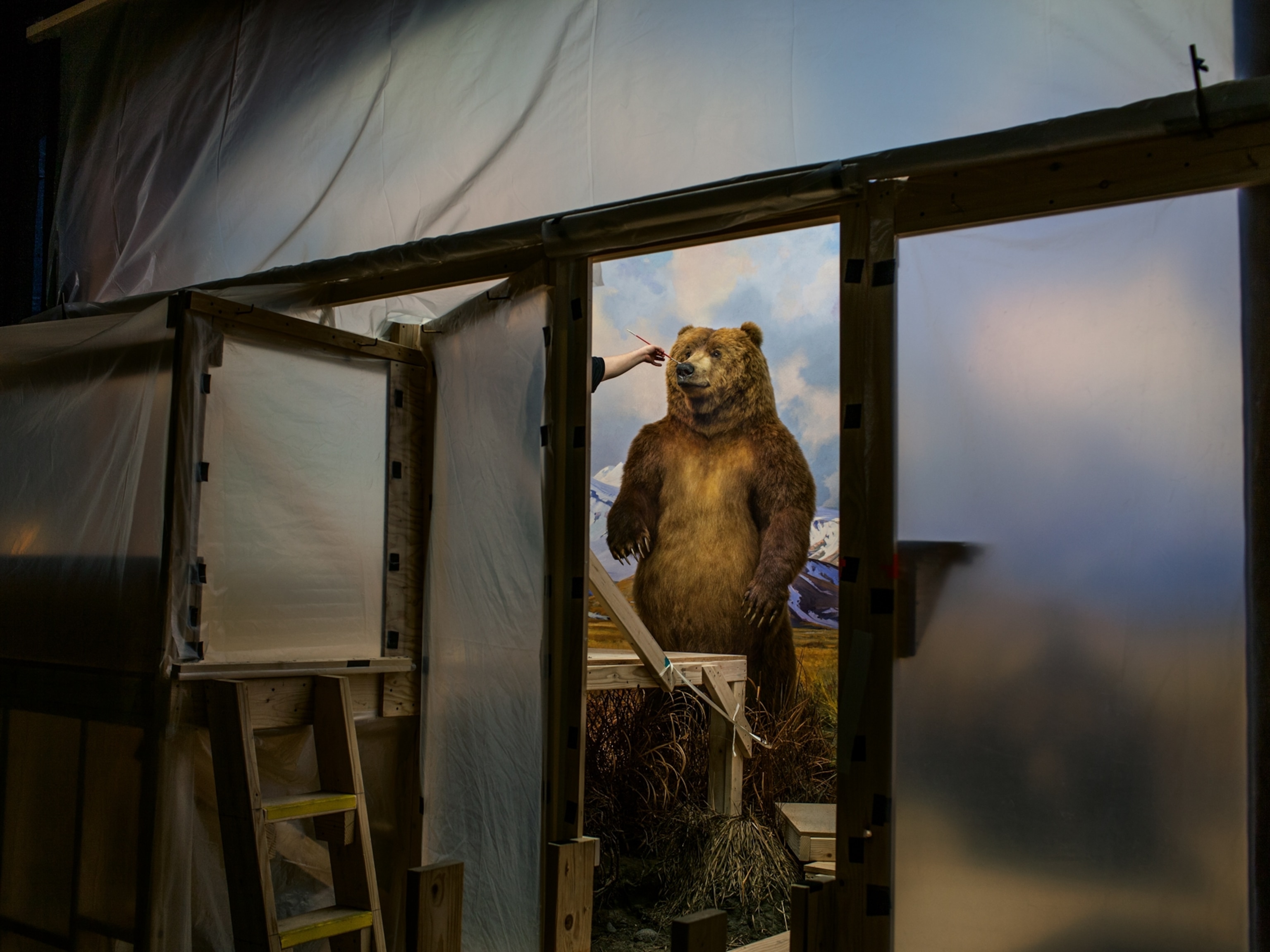
Gorillas Extinct in Ten Years in Central Africa?
Rise in Chinese timber demand, ape-meat eating, and mining blamed.
Gorillas may soon go extinct across much of central Africa, a new United Nations report says. Among the threats are surges in human populations, the ape-meat trade, and logging and mining as well as the spread of the Ebola virus and other diseases, the report says.
Stretching from the Atlantic Coast to the East African countries of Burundi and Rwanda (regional map), the Congo Basin covers much of central Africa and has traditionally been a rain forest refuge for gorillas and other apes.
But "with the rate of poaching and habitat loss, gorillas in the region may disappear from most of their present range in less than 10 to 15 years from now," according to the report, co-authored by the international law enforcement agency Interpol.
(Pictures: inside a western lowland gorilla troop in the Congo Basin.)
Previous Study Too Optimistic?
Eight years ago a similar study had predicted gorillas in the Congo Basin would lose 90 percent of their present habitat by 2030. Now it seems even that dire prognosis was too optimistic, the new report says.
At the time, researchers had failed to predict the rise in Chinese demand for timber or the growth of mining in the Democratic Republic of Congo. (Related: "Elephants Decimated in Congo Park; China Demand Blamed.")
Adding to the gorillas' plight is the shedding of taboos against eating gorilla meat, the report says. Increasingly, mining and logging camps are hiring professional poachers to provide "bush meat"—wild animal flesh—for their workers and for refugees who've fled nearby conflict.
(See bush-meat pictures—warning: graphic images.)
Though gorillas still make up a tiny percentage of the bush-meat trade, losses can be devastating, because gorilla numbers are already so low and their communities are so tightly knit, experts say.
"If you kill a gorilla, you can compare it to killing a family member in a human family," said Christian Nellemann, the new report's editor in chief. "In this case, you also disrupt their movement patterns and feeding sites."
Also disruptive are pathogenic threats—many of them worsening as humans stream into formerly virgin forests—the report says.
In addition to naturally occurring pathogens such as the Ebola virus—which "may be contributing substantially to great ape declines in central Africa"—human- and livestock-based gastrointestinal pathogens such as E. coli can weaken ape immune systems and reproductive success, the report says. (See "Ebola Killing Thousands of Gorillas, Study Says.")
Most of these interspecies infections don't require human-gorilla contact, either. Rather, they make the jump via water or soil, for example.
Cell Phones Bad for Gorillas?
The most threatened Congo Basin gorilla species is the eastern lowland gorilla, which lives mostly in eastern Congo's North and South Kivu regions, said Nellemann, a UN Environment Programme official.
Those areas have seen some of the worst of the fighting between the Congolese army and rebel groups in recent years. Kivu has also seen an increase in mining for metals such as gold and coltan, a mineral used in cell phones and other electronics. (See "Can Cell-Phone Recycling Help African Gorillas?")
The discovery of a previously unknown group of 750 eastern lowland gorillas buoyed hopes in 2009, but overall numbers are still down from about 17,000 in the mid-1990s to 5,000 eastern lowland gorillas today.
All Eggs in One Basket
The report does point to one success story: the rebound of the iconic mountain gorillas of Virunga National Park in the Democratic Republic of the Congo's east (Virunga gorilla pictures and facts).
Virunga mountain gorilla numbers rose from about 250 in the 1950s to some 380 today, thanks mostly to stepped-up ranger patrols, which target poachers as well as loggers, who cut down wood for the charcoal trade.
"It has been a success story, but it doesn't make them any less vulnerable," said Emmanuel de Merode, director of Virunga National Park. "We're dealing with an unusual situation where we have very low numbers in a single location.
"It's like having all your eggs in one basket," de Merode added. "And that makes them very vulnerable [despite] the success we've been having these last few years."



